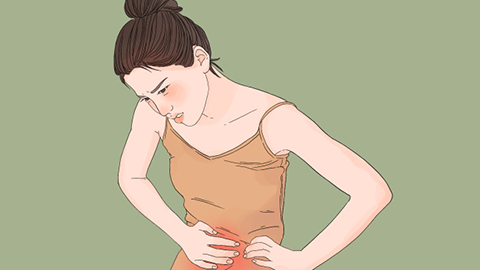What causes diarrhea during the consumption of cod liver oil?
Generally, diarrhea during the intake of cod liver oil may be caused by individual differences, excessive intake, allergic reactions, irritable bowel syndrome, chronic pancreatitis, or other reasons. Symptomatic management can include general treatment and medication. If discomfort occurs, it is recommended to seek medical attention promptly. The specific analysis is as follows:

1. Individual Differences
Individual differences may cause some people to be sensitive to vitamin A, vitamin D, or other components in cod liver oil, especially the fatty acids in fish oil. These components may cause changes in the osmotic pressure within the intestines, stimulating intestinal peristalsis and causing diarrhea. It is recommended to try switching to a different brand or type of cod liver oil product.
2. Excessive Intake
Long-term excessive consumption of cod liver oil may lead to high levels of vitamin A and vitamin D in the body, affecting the absorption and utilization of nutrients in the intestines. Additionally, the metabolites of these vitamins may irritate the intestinal tract, causing diarrhea, which may be accompanied by symptoms of vitamin toxicity such as headache and dizziness. It is recommended to immediately stop excessive intake of cod liver oil and adjust the diet to reduce the intake of vitamin A and vitamin D.
3. Allergic Reaction
Some individuals may have allergic reactions to certain components in cod liver oil, triggering intestinal allergic reactions that cause inflammation and edema of the intestinal mucosa, affecting normal intestinal function and resulting in diarrhea. Other allergic symptoms such as rash, itching, and difficulty breathing may also occur. It is recommended to use medications such as cetirizine hydrochloride tablets, loratadine tablets, or promethazine hydrochloride tablets under medical guidance for treatment.
4. Irritable Bowel Syndrome
Irritable bowel syndrome is a common functional intestinal disorder. Patients' intestines are more sensitive to food, stress, and other factors. Components in cod liver oil may further stimulate the intestines, worsening diarrhea symptoms, which may be accompanied by abdominal pain, bloating, alternating constipation and diarrhea, and other symptoms. It is recommended to follow medical advice to use medications such as mebeverine hydrochloride tablets, alverine citrate capsules, or pinaverium bromide tablets to alleviate symptoms.
5. Chronic Pancreatitis
Chronic alcohol abuse, hyperlipidemia, and other factors may lead to chronic pancreatitis. Patients with impaired pancreatic function experience reduced secretion of digestive enzymes, particularly lipase, causing fats in food to be inadequately broken down. Undigested fats entering the small intestine affect water absorption in the intestines, leading to diarrhea, which may be accompanied by upper abdominal pain, weight loss, and fatty stools. It is recommended to use medications such as pantoprazole sodium enteric-coated capsules, omeprazole enteric-coated capsules, or octreotide acetate injection under medical guidance for treatment.
It is recommended to maintain a bland diet in daily life, avoid high-fat and greasy foods, and consume more warm foods such as rice porridge and soft noodles, which are beneficial for gastrointestinal health.




